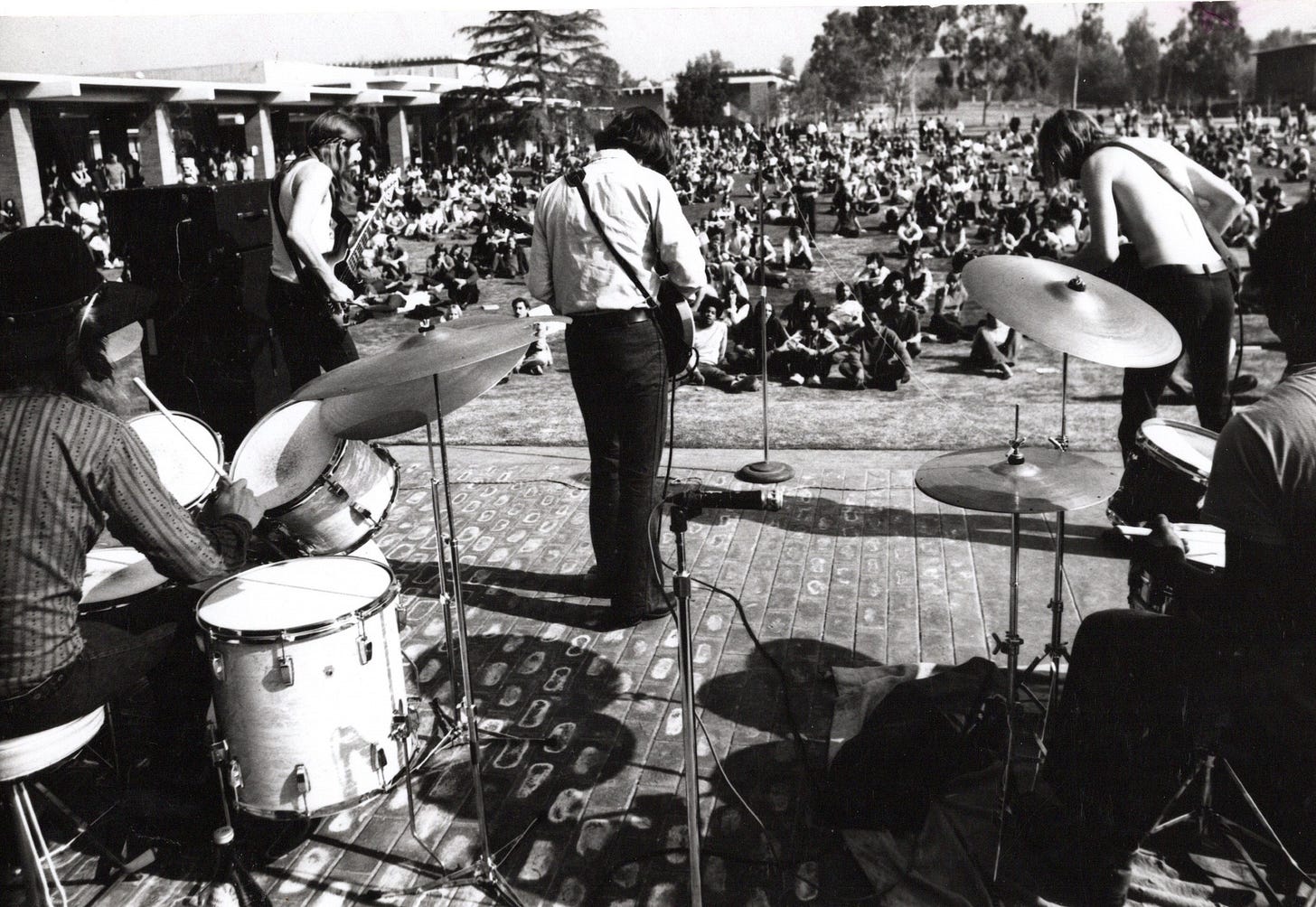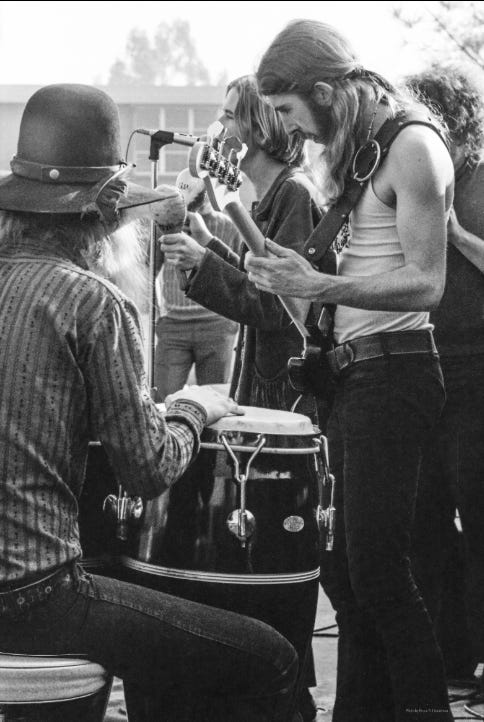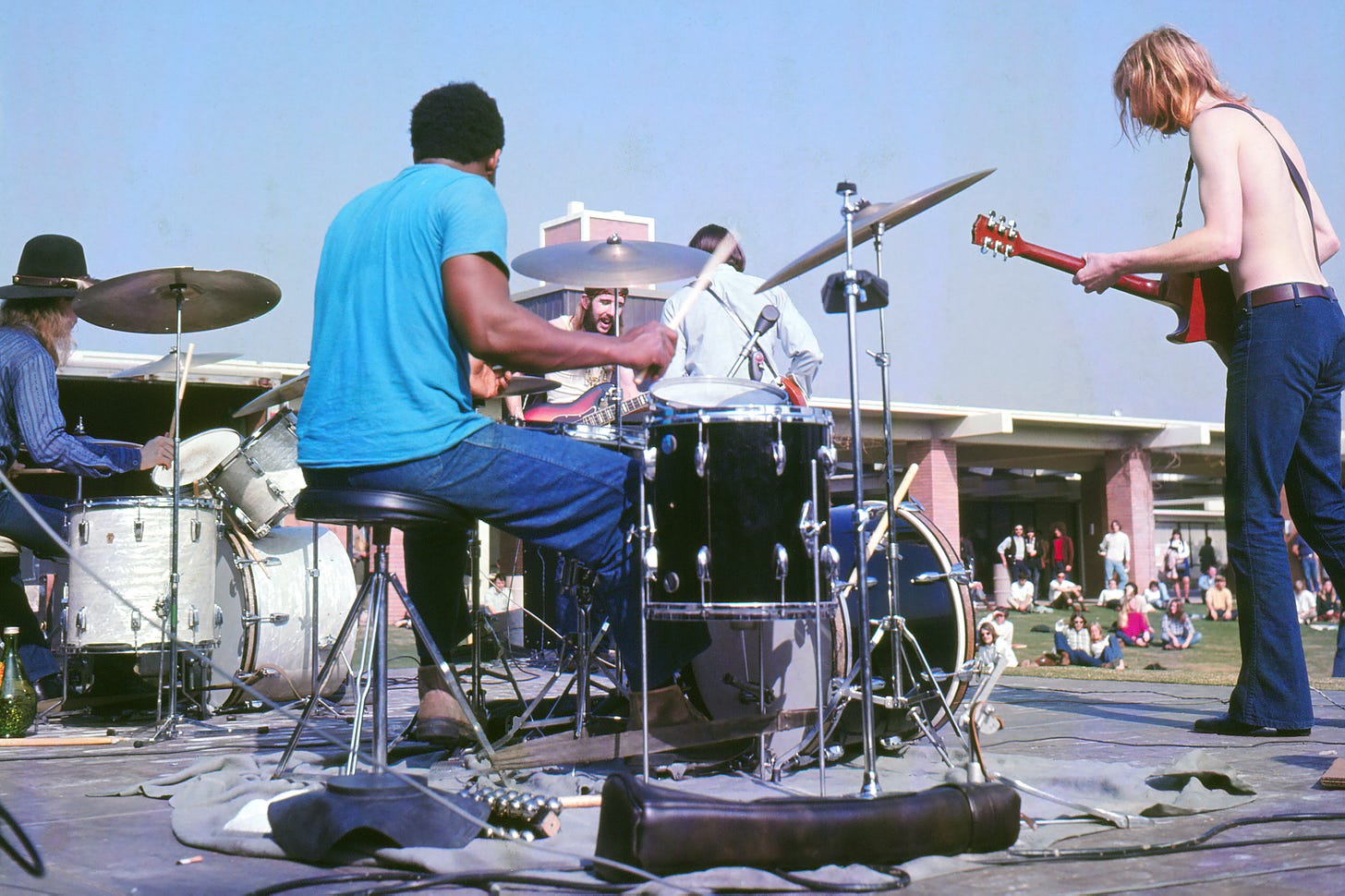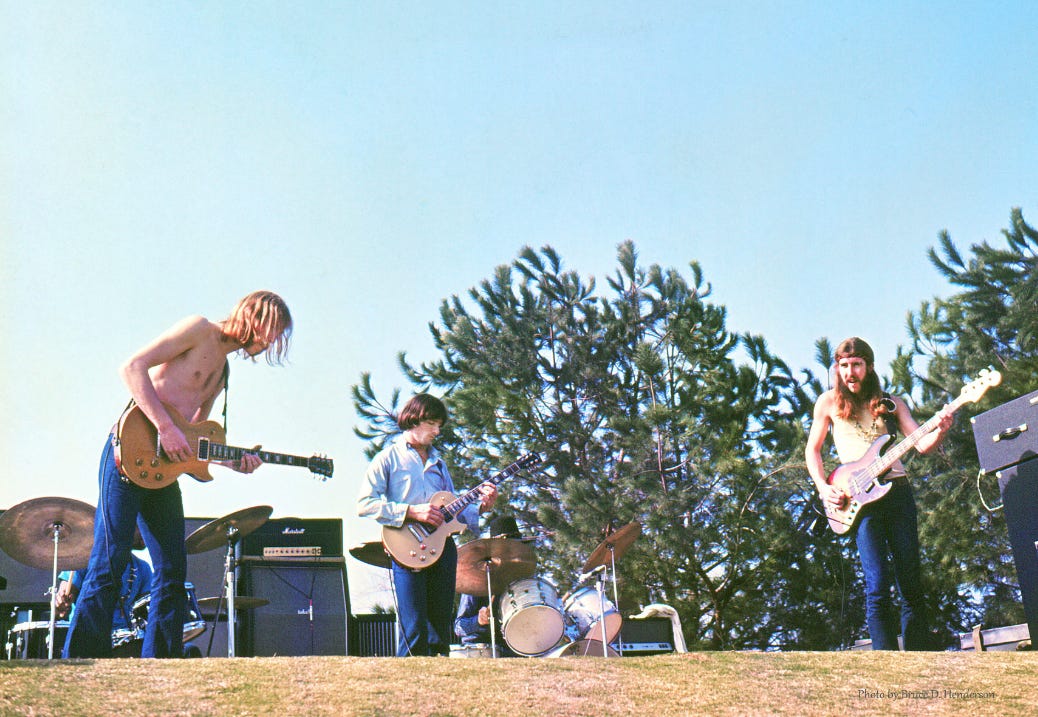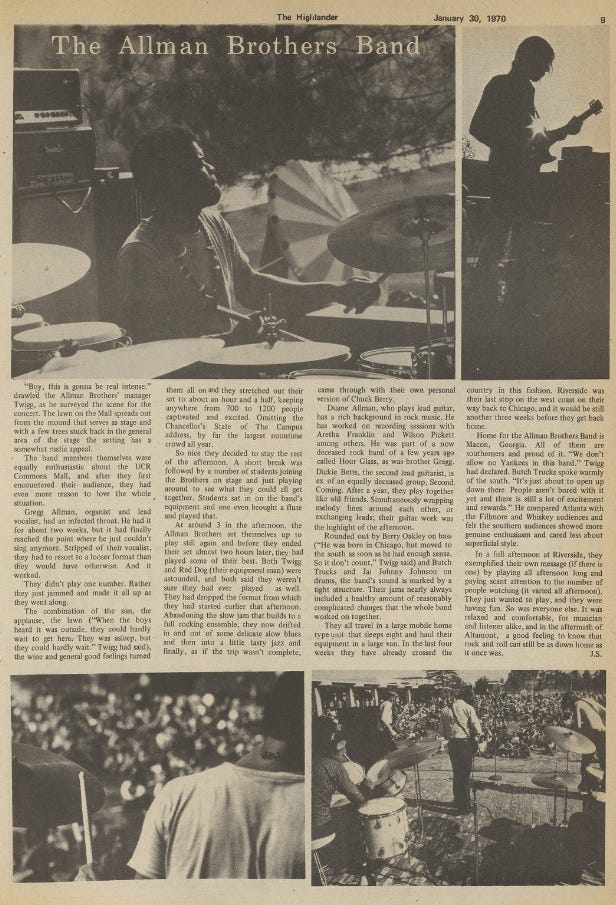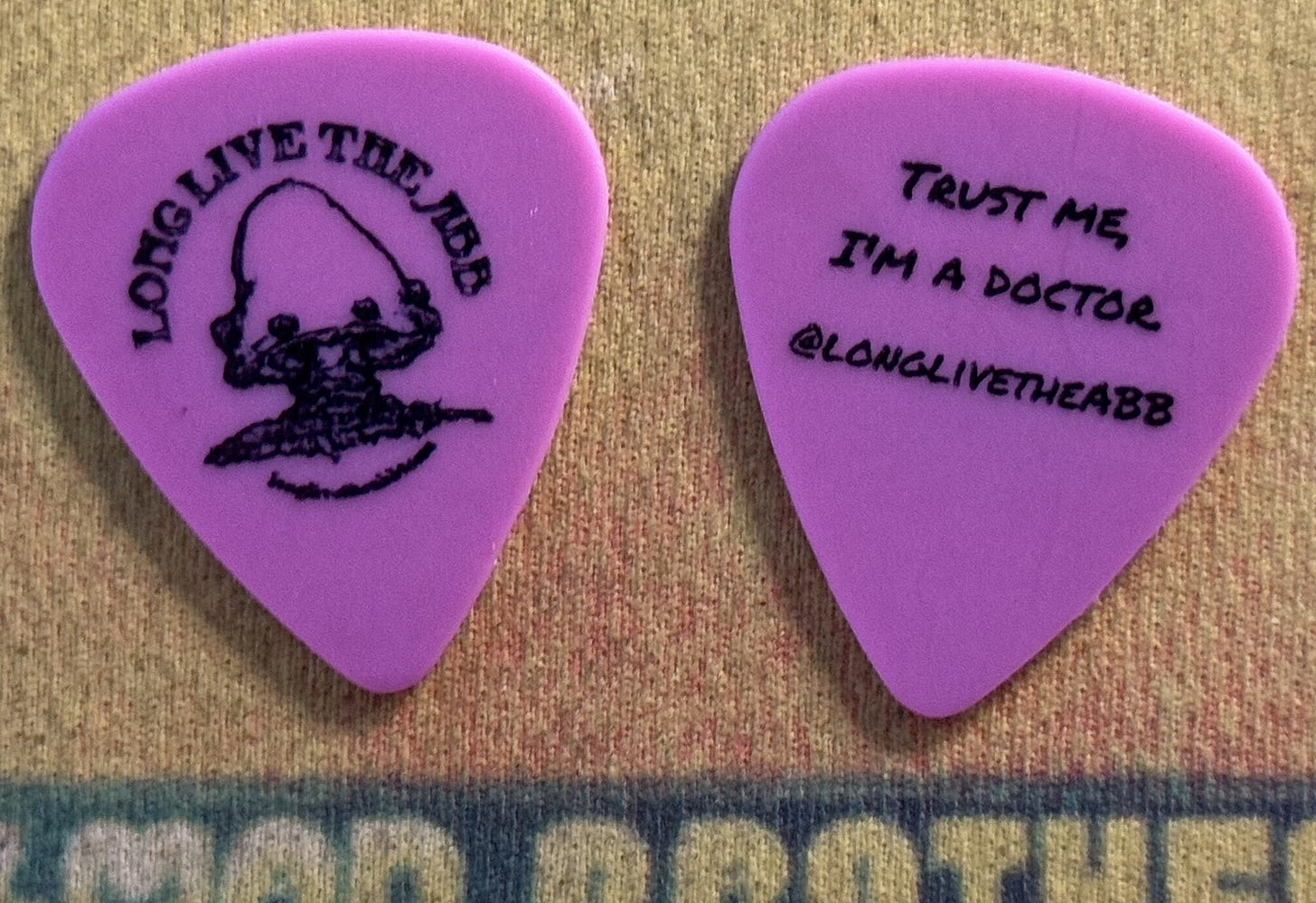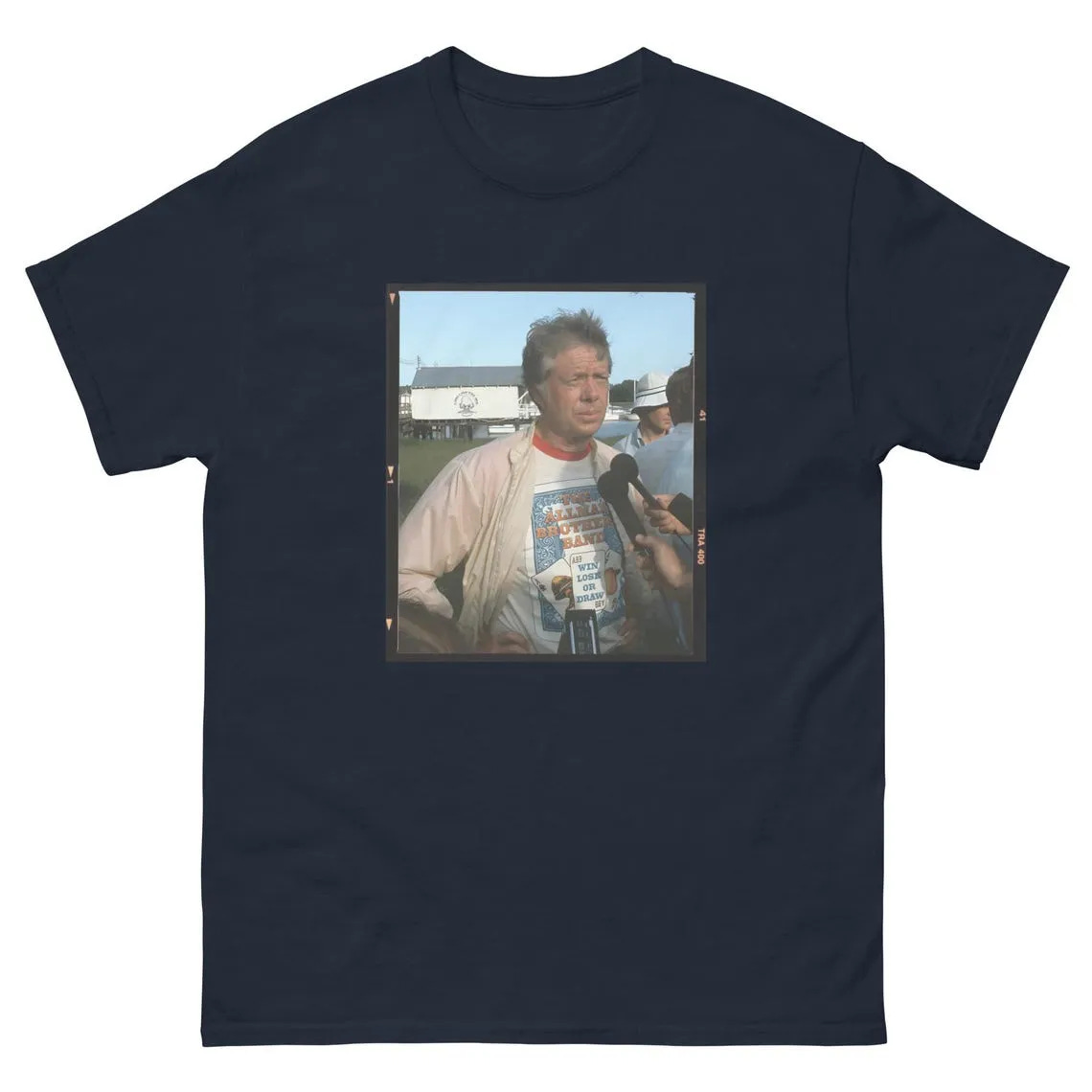Backstory: ABB, University of California-Riverside January 26, 1970
Pretty excited to share this essay/review by legendary rock writer Joel Selvin1 of the Allman Brothers’ January 26, 1970 appearance at University of California-Riverside.
Selvin’s piece ran January 30 in UCR’s newspaper, The Highlander. Photographer Bruce D. Henderson documented the performance.2 (I used two of Bruce’s photos in Play All Night: Duane Allman and the Journey to Fillmore East.3)
This one is right up my alley, primary sources galore: incredible photos and a really thorough article about the band and performance.
But first, a treat.
Jack Pearson “Dreams” 8/2/25 3rd & Lindsley, Nashville
The great Jack Pearson made an all-too-rare live appearance this past weekend. I caught a few videos, including this instrumental take on “Dreams.”4 You’re welcome. 🍄
“The Allman Brothers Band” Joel Selvin, The Highlander 1/30/70
“Boy, this is gonna be real intense,” drawled the Allman Brothers' manager Twiggs, as he surveyed the scene for the concert.
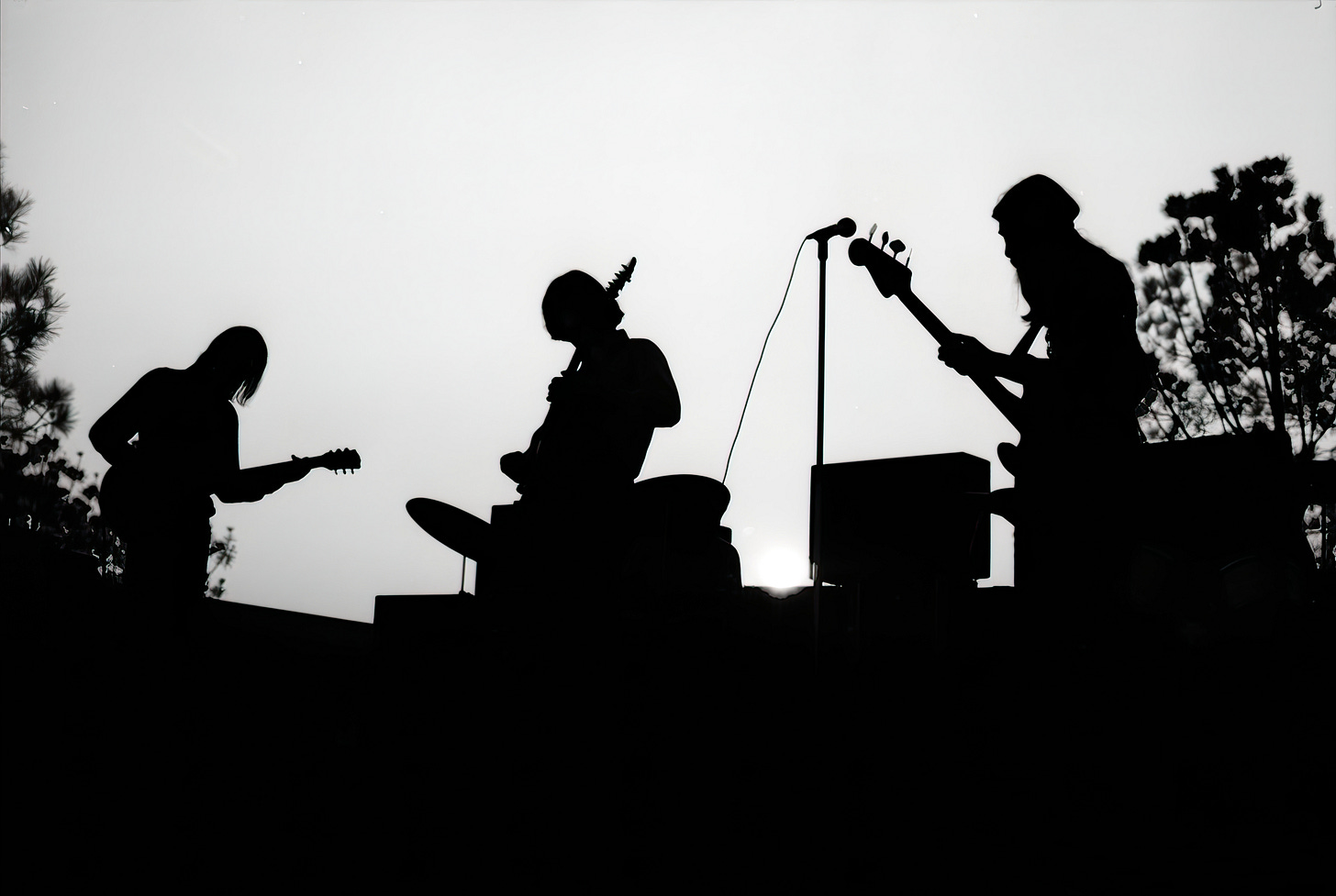
The lawn on the Mall spreads out from the mound that serves as stage and with a few trees stuck back in the general area of the stage the setting has a somewhat rustic appeal.
The band members themselves were equally enthusiastic about the UCR Commons Mall, and after they first encountered their audience, they had even more reason to love the whole situation.
Gregg Allman, organist and lead vocalist, had an infected throat. He had it for about two weeks, but it had finally reached the point where he just couldn't sing anymore.
Stripped of their vocalist, they had to resort to a looser format than they would have otherwise.
And it worked.
They didn't play one number.
Rather they just jammed and made it all up as they went along.
The combination of the sun, the applause, the lawn, the wine, and good feelings turned them all on, Twiggs said. “When the boys heard it was outside, they could hardly wait to get here. They was asleep, but they could hardly wait.”
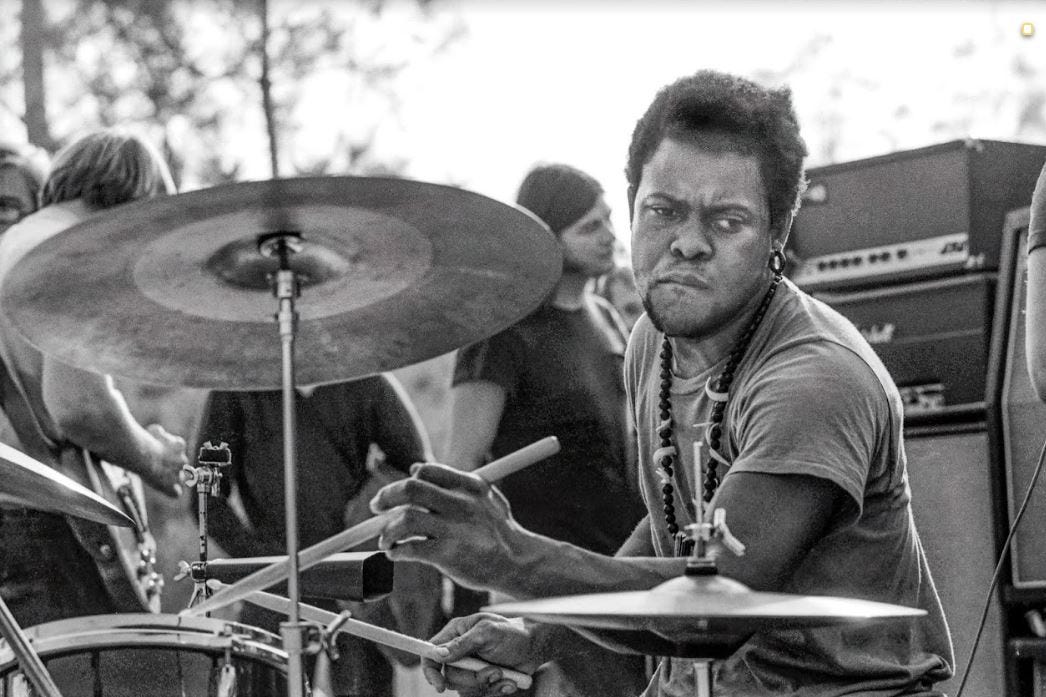
They stretched out their set to about an hour and a half, keeping anywhere from 700 to 1,200 people captivated and excited. Omitting the Chancellor's State of the Campus address, by far the largest noontime crowd all year.
So nice they decided to stay the rest of the afternoon. A short break was followed by a number of students joining the Brothers on stage and just playing around to see what they could all get together. Students sat in on the band's equipment and one even brought a flute and played that.
At around 3 in the afternoon, the Allman Brothers set themselves up to play still again and before they ended their set almost two hours later, they had played some of their best.
Both Twiggs and Red Dog (their equipment man) were astounded, and both said they weren't sure they had ever played as well.
They had dropped the format from which they had started earlier that afternoon.
Abandoning the slow jam that builds to a full rocking ensemble, they now drifted in and out of some delicate slow blues and then into a little tasty jazz and finally, as if the trip wasn't complete, came through with their own personal version of Chuck Berry.
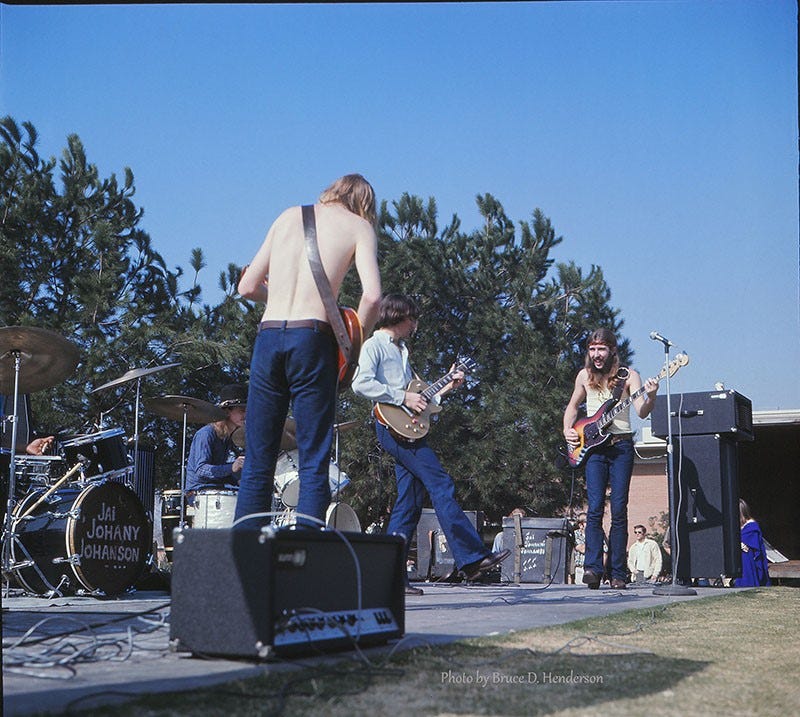
Dickey Betts, a second lead guitarist, is ex of an equally deceased group: Second Coming.
After a year, they play together like old friends.
Simultaneously wrapping melody lines around each other, or exchanging leads; their guitar work was the highlight of the afternoon.
Rounded out by Berry Oakley on bass (“He was born in Chicago, but moved to the South as soon as he had enough sense. So it don't count,” Twiggs said.) and Butch Trucks and Jai Johanny Johanson on drums, the band's sound is marked by a tight structure.
Their jams nearly always included a healthy amount of reasonably complicated changes that the whole band worked on together.
They all travel in a large mobile home type unit that sleeps eight and haul their equipment in a large van. In the last four weeks they have already crossed the country in this fashion. Riverside was their last stop on the West Coast on their way back to Chicago, and it would be still another three weeks before they get back home.
Home for the Allman Brothers Band is Macon, Georgia. All of them are southerners and proud of it. “We don't allow no Yankees in this band,” Twiggs declared.
Butch Trucks spoke warmly of the South. "It's just about to open up down there. People aren't bored with it yet and there is still a lot of excitement and rewards." He compared Atlanta with the Fillmore and Whisky audiences and felt the southern audiences showed more genuine enthusiasm and cared less about superficial style.
In a full afternoon at Riverside, they exemplified their own message (if there is one) by playing all afternoon long and paying scant attention to the number of people watching (it varied all afternoon).
They just wanted to play, and they were having fun. So was everyone else.
It was relaxed and comfortable, for musician and listener alike, and in the aftermath of Altamont, a good feeling to know that rock and roll can still be as down home as it once was.5
Random Notes
The band stopped at the Grand Canyon on their way East and Twiggs took some classic photos, including this gem that appeared in the Dreams box set.6
Selvin’s original article contains some different photographs.7
Lagniappe
Audio recording (partial) of the ABB’s appearance at UCR 1/26/70. Not the greatest sound quality, but beggars can’t be choosers.
Thanks for reading.
Until next time…
MERCH!
Check him out if you’re unfamiliar. Selvin has a ROBUST resume.
Here’s all of Bruce’s shots from the show: https://www.bdh-photo.com/allman-brothers-band-jan-26-1970.
Give the Amazon algorithm a tickle please: https://www.amazon.com/dp/0813069505
Posted more videos of Jack & his band at https://www.youtube.com/@longlivetheabb/videos.
In 2016, Selvin published Altamont: The Rolling Stones, the Hells Angels, and the Inside Story of Rock's Darkest Day.
Full story on that Grand Canyon visit:
Jaimoe’s photo has been reversed. He uses his left hand for military (traditional) grip. (See Jaimoe photo above for an example.)



